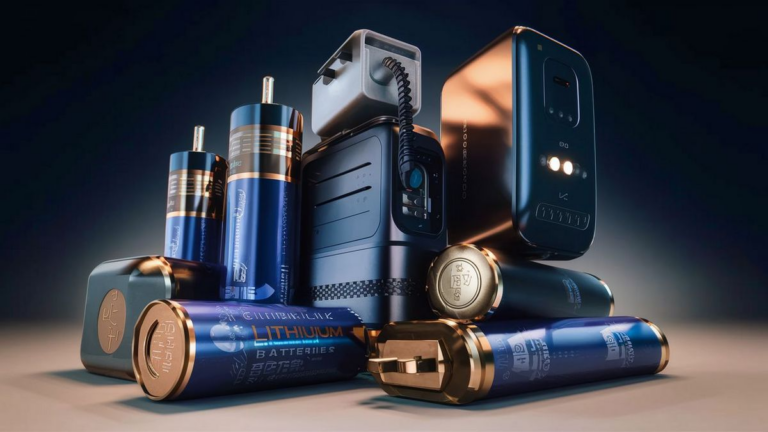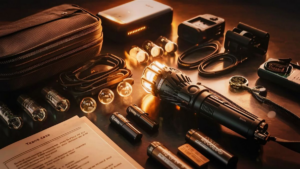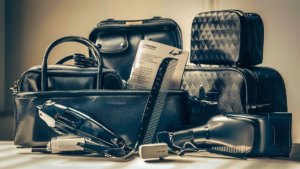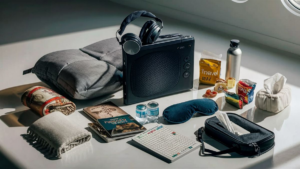Traveling with electronic devices has become commonplace in today’s world, and with that comes the question of whether lithium batteries can be brought aboard airplanes. Lithium batteries power a wide range of devices, from smartphones and laptops to cameras and medical equipment. Understanding the regulations surrounding lithium batteries on airplanes is crucial for travelers to ensure a smooth and hassle-free journey.
Understanding Lithium Batteries
Lithium batteries are known for their high energy density and are commonly used in portable electronic devices due to their lightweight nature and long-lasting power. However, these batteries also pose a safety risk, as they can overheat and catch fire if damaged or improperly handled.
Regulations and Restrictions
When it comes to air travel, regulations regarding lithium batteries are in place to mitigate the risk of fire hazards. The International Air Transport Association (IATA) and the International Civil Aviation Organization (ICAO) have established guidelines that airlines must adhere to regarding the transportation of lithium batteries.
Passengers are typically allowed to bring lithium batteries in their carry-on luggage, but there are restrictions based on the watt-hour (Wh) rating of the battery:
| Battery Type | Allowed in Carry-On | Allowed in Checked Baggage |
|---|---|---|
| Lithium-ion Batteries (Rechargeable) | Yes (with watt-hour rating restrictions) | No (unless installed in a device) |
| Lithium Metal Batteries (Non-rechargeable) | Yes (with quantity and watt-hour rating restrictions) | No (unless installed in a device) |
It’s important to note that spare lithium batteries are not allowed in checked baggage due to the risk of short circuits. They should always be carried in carry-on luggage where they can be easily monitored.
Watt-Hour (Wh) Rating Restrictions
The watt-hour rating of a lithium battery indicates its energy storage capacity and is calculated by multiplying the battery’s voltage by its amp-hour (Ah) rating. Most airlines impose restrictions on the watt-hour rating of lithium batteries that can be carried aboard:
- Batteries with a rating of up to 100 Wh are typically allowed in carry-on luggage without prior approval.
- Batteries with a rating between 100 Wh and 160 Wh may be allowed with airline approval.
- Batteries exceeding 160 Wh are generally prohibited on passenger aircraft.
Tips for Traveling with Lithium Batteries
To ensure a smooth travel experience when carrying lithium batteries, consider the following tips:
- Check the watt-hour rating of your batteries before packing them for your trip.
- Keep spare batteries in their original packaging or insulate them to prevent short circuits.
- Avoid carrying damaged or swollen batteries, as they pose a greater risk of fire.
- Inform airline personnel if you are carrying batteries exceeding the allowed limits for approval.
- Follow any specific instructions provided by the airline regarding the transportation of lithium batteries.
Traveling with lithium batteries on a plane is generally permitted, but it’s essential to understand and adhere to the regulations set forth by airlines and aviation authorities. By following the guidelines outlined above and exercising caution when handling lithium batteries, passengers can ensure a safe and hassle-free journey.
Frequently Asked Questions
Here are some frequently asked questions regarding the transportation of lithium batteries on airplanes:
- Can I bring spare lithium batteries in my checked baggage?
No, spare lithium batteries are not allowed in checked baggage due to the risk of short circuits. They should always be carried in carry-on luggage. - What are the restrictions based on the watt-hour (Wh) rating of lithium batteries?
Airlines typically impose restrictions on the watt-hour rating of lithium batteries. Batteries with a rating of up to 100 Wh are usually allowed in carry-on luggage without prior approval. Batteries between 100 Wh and 160 Wh may be allowed with airline approval, while batteries exceeding 160 Wh are generally prohibited on passenger aircraft. - How should I pack spare lithium batteries for travel?
Spare lithium batteries should be kept in their original packaging or insulated to prevent short circuits. Avoid carrying damaged or swollen batteries, as they pose a greater risk of fire.
Precautions and Safety Measures
Aside from adhering to regulations, there are additional precautions and safety measures travelers can take when carrying lithium batteries:
- Ensure batteries are securely packed to prevent shifting during travel.
- Avoid exposing batteries to extreme temperatures or direct sunlight.
- If possible, carry devices with installed batteries rather than spare ones.
- Monitor batteries during the flight for any signs of overheating or damage.
See also:






